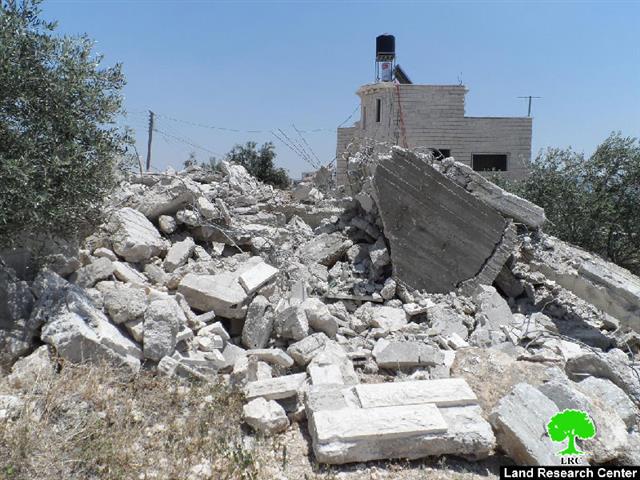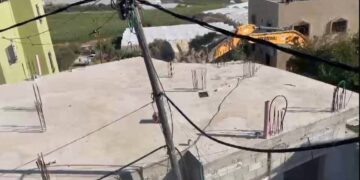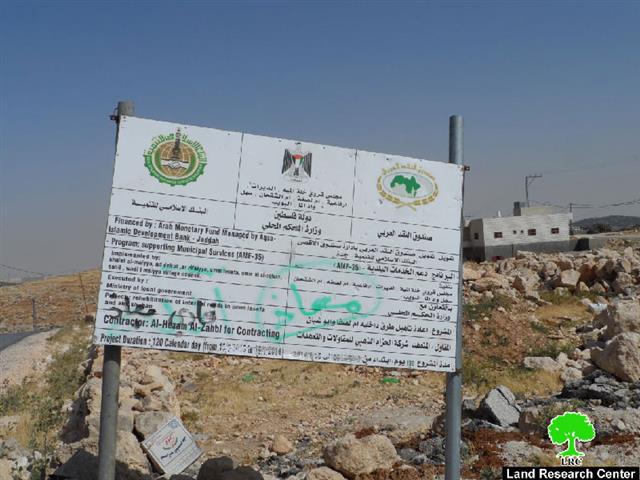Violation: the demolition of an under construction house.
Location: " AL Ras"- Idhna town Hebron Governorate.
Perpetrators : the occupation army and the Civil Administration
Victims: the citizen Mouhamad Farajallah.
Details :
On 17/06/2014, the Israeli occupation authorities demolished an under construction house owned by the citizen Mohamad Farajallah in the western part of Idhna town.
The sister of the property's owner related that they , around 6:00 am, were surprised by the military troops surrounding the house in Al Ras area; west of the town. The troops were riding a bulldozer for the army to destroy the house.
Photos 1-5: the occupation forces during the demolition operation ( Source: Idhna Municipality)
When asked about the demolition reason, knowing that the residents only received a stop-work notification and that they hired an attorney to protest against the order, the answer came from the occupation army officer as " a political decision" to bring the house down.
As for the demolished house, it was built by the end of 2012 and consisted of a ground floor of a 50 m2 and a second unroofed floor of 130 m2 in area. The family of Farajalla that consist of three members; the man , his wife and a single child, were to live in that house.
Photos 6-9: the ruins of the house after the demolition
On 25/12/2012, the occupation authorities sent a stop-work order for the citizen Farajallah when the house was in the first phase of construction. According to Farajallah sister's testimony, he has hired an attorney to defend his right; nonetheless, the occupation authorities leveled the house into dust.
Some of the international conventions against house demolitions:
Article 17 – Universal Declaration of Human Rights:
- Everyone has the right to own property alone as well as in association with others.
- No one shall be arbitrarily deprived of his property
Article 23 of the Hague convention of 1907:
It is forbidden to destroy or seize the enemy's property, unless such destruction or seizure be imperatively demanded by the necessities of war;
Article (53) of the fourth Geneva convention of the 1948 :
Any destruction by the Occupying Power of real or personal property belonging individually or collectively to private persons, or to the State, or to other public authorities, or to social or cooperative organizations, is prohibited, except where such destruction is rendered absolutely necessary by military operations.
International Covenant on Economic, Social and Cultural Rights of 1966 by the United nations General Assembly resolution 2200:
The States Parties to the present Covenant recognize the right of everyone to an adequate standard of living for himself and his family, including adequate food, clothing and housing, and to the continuous improvement of living conditions. The States Parties will take appropriate steps to ensure the realization of this right, recognizing to this effect the essential importance of international co-operation based on free consent
Prepared by
The Land Research Center
LRC




















